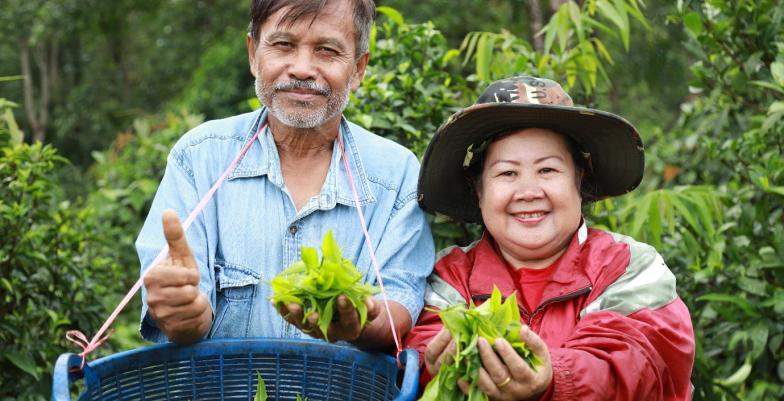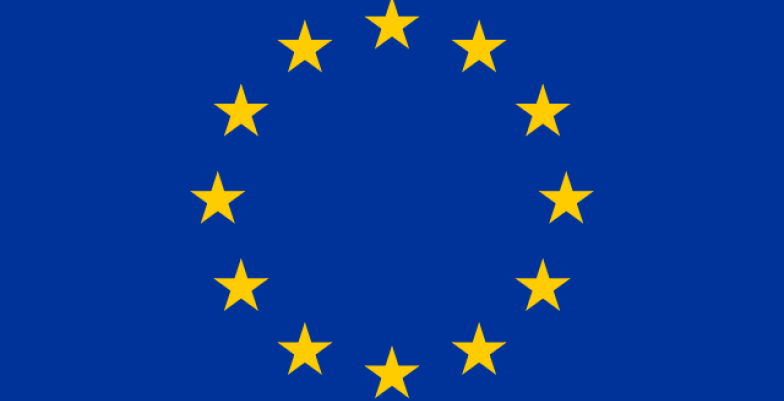RELATIONS WITH THE EU
Oman and the EU
BILATERAL RELATIONS
Bilateral relations between Oman and the EU are based on their mutual interest in different fields. The EU and Oman engage in a dynamic political dialogue to promote security, stability and sustainability. The EU appreciate the constructive role of Oman in the regional political processes.

Cooperation Arrangement with Oman
The EU’s cooperation with Oman is broad an covers topics such as cooperation in higher education, technical and vocational education and training (TVET), climate change and renewable energies, investment, aviation and blue economy.
The field of clean energy is a key cooperation topic. The EU provided a series of online training seminars in cooperation with the Institute of Oil and Gas in Oman. In the thematic area of trade and investment, the EU recently held a seminar on European policies towards Bilateral Investment Treaties. All these activities contribute to enhancing cooperation between the EU and Oman and to strengthen our partnership.
Oman shares with the EU the challenge of maritime security, which is one of the most pressing security issues that both sides face in the Indian Ocean. Since 2008, Oman has been a constructive partner in Operation Atalanta, the EU Naval Force mission to combat piracy on the coasts of Somalia, the Horn of Africa and the Gulf of Aden.
The European External Action Service and the Ministry of Foreign Affairs of the Sultanate of Oman signed a cooperation agreement in September 2018, which was signed in Brussels by H.E. Federica Mogherini, former High Representative of the European Union for Foreign Affairs and Security Policy (HRVP), and H.E. Mr Yusuf bin Alawi bin Abdullah, former Minister responsible for Foreign Affairs of the Sultanate of Oman.
This cooperation arrangement aims at strengthening political dialogue and cooperation in sectors of mutual interest. It allows Oman and the EU to engage on various levels and will therefore contribute to yet closer relations. The annual bilateral summits divided into working groups are also an opportunity to discuss challenges and
In Oman, this project aims to contribute to the implementation of the Vision 2040 transformation agenda. Based on their own rich experience, the EU and its Member States have a lot of experience and know-how to share.
Trade and investment relations
The EU is Oman’s 6th trading partner with a total of 1.9 bn Euro with 4.2% of Oman’s global trade. Oman is the EU’s 65th trading partner in goods, with a total trade of 3.3 bn Euro and with an EU market share of 0.1 %. Oman mainly imports machinery and chemicals from the EU while it mainly exports chemicals and manufactured goods to the EU. The EU focused on curbing illegal fishing and renewable energy in its bilateral relations with Oman. In addition, the EU is in the process of negotiation an aviation agreement with the Omani authorities. The EU intends to deepen investment ties and strengthen its cooperation with the Sultanate of Oman. Boosting non-oil exports and attracting more FDI requires the development of a thriving private sector.
Education
Erasmus +
This program is active in the Gulf region, and provides young people and academics the opportunity to study or teach abroad. While the internal integration of European countries is at the heart of our identity, external actions and exchanges with other countries are the EU’s cardiovascular system. Our programs embody our desire to create a dialogue between cultures. Erasmus + draws the enriching experience of otherness. In the Gulf region, the European Union is keen on cooperation to face together with our young generation the challenges of tomorrow through specific programs. The Jean Monnet program, as an example, represents excellence in teaching and research in the field of European affairs. Since its inception, the program has reached more than 500,000 students each year. And we expect to higher this number in the next years to reach more people in the Gulf region.
Recently, Oman participated in the webinar organized by the EU on the Erasmus Mundus joint master. This high-level education program integrated study programmes at master level. The programmes are designed and delivered by an international partnership of higher education institutions from different countries worldwide and supported by the Omani ministry of higher Education.
Human Rights
The Chaillot Prize for human rights activities in the GCC countries
Since 2009, the European Union Delegation in Saudi Arabia has run, on an annual basis, the Chaillot Prize for the Promotion of Human Rights in the GCC Region. The Prize honours local civil society organisations, public or private institutions, as well as individuals for their efforts in promoting general awareness of human rights and the rights of vulnerable groups in the GCC region.
Projects
The EU-GCC Dialogue on Economic Diversification project
The EU-GCC Dialogue on Economic Diversification project was launched in 2018 by the European Union through its Partnership Instrument. The purpose of the project is to promote trade, investment and economic affairs related policy analysis, dialogue and co-operation between the EU and GCC at both regional and individual country levels.
The project has been working with both EU and Omani stakeholders to develop connections and to build partnerships based on the exchange of EU experience and expertise to assist the Sultanate in its economic diversification strategy contained within Vision 2040. A number of project initiatives have been specifically targeted at Oman but the country also benefits from broader project activities across the GCC.
Projects in Oman focus on business growth; Oman’s participation in the Horizon Europe programme; Oman-EU trade and investment connections; and Oman’s Vision 2040.
Enhanced EU-GCC Political Dialogue, cooperation and outreach
On December 2020 the EU launched a new project “Enhanced EU-GCC Political Dialogue, Cooperation and Outreach” aimed at deepening cooperation between the EU, GCC and its Member States, and enhancing knowledge about the EU in the GCC. The overall objective of the project is to contribute to a stronger relationship between the European Union and the GCC countries as well as the GCC itself. For this matter, the EU would like to enhance the political dialogue, cooperation and outreach with the GCC (both regionally as well as with individual countries in the region). The European External Action Service (EEAS), as well as the EU delegations in the region are key stakeholders in this project, together with the host country and GCC institutions and organisations.
The EU-GCC Clean Energy Technology Network
The EU-GCC Clean Energy Technology Network was established in 2010 and funded by the EU, to foster closer cooperation between the EU and GCC countries on clean energy policies and technologies, both at regional and bilateral levels. The Network has proven to be an excellent tool to enrich the EU-Oman energy dialogue and cooperation, to engage with Omani and EU partners in the discussion on sustainable energy policies and to facilitate the sharing of clean energy policies, technologies and best practices. The Network engages with key stakeholders in Oman, including ministries and public bodies; academia; and the private sector.
The EU-GCC Free Trade Agreement (FTA) trade negotiations
The EU and Gulf Cooperation Council launched negotiations for a Free Trade Agreement (FTA) in 1990. The negotiations were halted in 2008, when the GCC countries suspended negotiations. The GCC has requested in 2019 extensive information about the modern EU FTA. The EU modern FTA model foresees a progressive and reciprocal liberalisation of trade in goods, in services and includes investment facilitation, customs facilitation, procurement and energy cooperation, notably.
The EU remains open to dialogue with Saudi authorities and the GCC Secretariat on furthering the trade and investment partnership.
EU-GCC RELATIONS
EU-GCC cooperation is based on the 1988 Cooperation Agreement. Since then, annual Joint Cooperation Councils and Ministerial Meetings of the Cooperation Council for the Arab States of the Gulf and the European Union have been taking place. Political consultations at the highest level take place a regular basis, as well as regular SOMs and Ministerial meetings, while annual regional director meetings are hosted in Europe and in the Gulf. Beyond political coordination, practical cooperation has taken roots in a number of areas between the EU and the GCC over the years, as also manifested in the first Joint Action Programme (JAP), which included fourteen different sectors.
The EU is the 2nd biggest trade partner of the GCC (after China, 15.8%), representing 12.3% of the GCC’s total trade in goods with the world in 2020 and 7.8% of the GCC’s imports came from the EU in 2020. The EU thus ranked as the GCC’s number one import partner. In 2020, the EU was the 4th biggest export partner of the GCC as 6.9% of the GCC’s exports went to the EU. There is an ongoing cooperation between the EU and GCC on trade and investment issues, macro-economic matters, climate change, energy, digitalisation, space and environment as well as research and innovation. A structured informal EU-GCC dialogue on Trade and Investment was launched in May 2017 and have been meeting since on annual basis. In 2021, the 11th EU-GCC macroeconomic dialogue took place virtually and focused on the policy responses to the COVID-19 crisis and its medium-term economic implications.
EU exports to the GCC countries are diverse but focused on industrial products such as power generation plants, railway locomotives and aircrafts as well as electrical machinery and mechanical appliances.
EU-GCC Free Trade Agreement (FTA) trade negotiations
The EU and Gulf Cooperation Council launched negotiations for a Free Trade Agreement (FTA) in 1990. The negotiations were halted in 2008, when the GCC countries suspended negotiations. The GCC has requested in 2019 extensive information about the modern EU FTA. The EU modern FTA model foresees a progressive and reciprocal liberalisation of trade in goods, in services and includes investment facilitation, customs facilitation, procurement and energy cooperation.
Security cooperation
Counter terrorism and security relations with Oman and the Gulf countries are priorities for the European Union. The EU Delegation aims on developing an extensive and confident dialogue on security (including regional security) and CT with partner countries of the GCC. It also aims in developing a close cooperation in different fields like counter-terrorist finance and anti-money laundering, combatting extremism and in strengthening EU-GCC cooperation in sectors of great importance for our common security such as Justice, cyber security, police (Europol) and Chemical, Biological, Radiological and Nuclear (CBRN) Risk Mitigation Centres of Excellence (CRBN CoE).
Documents







